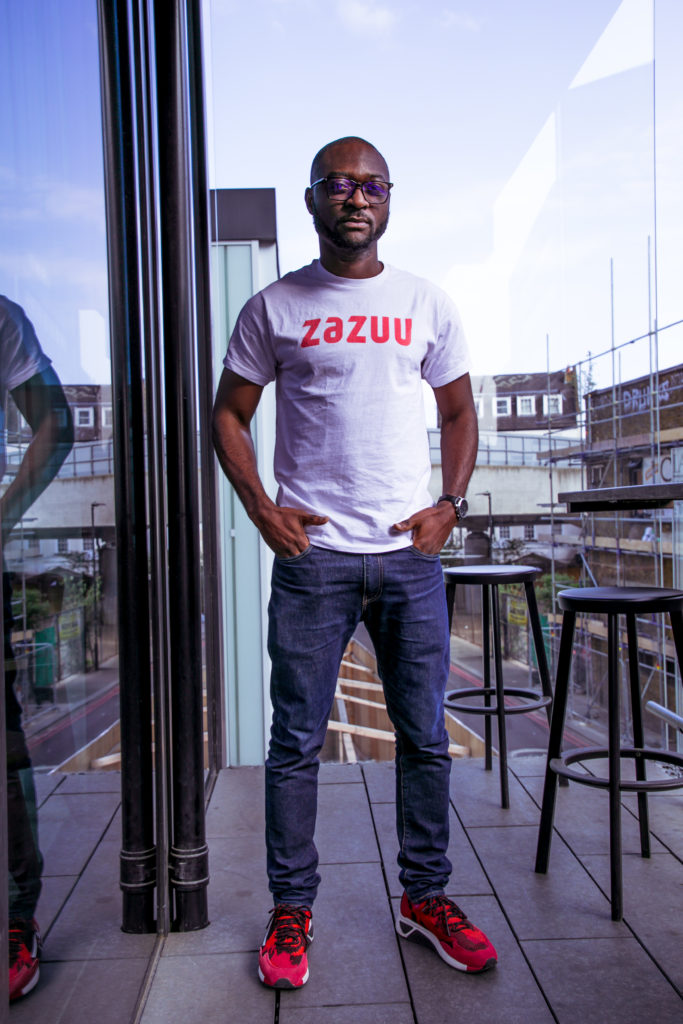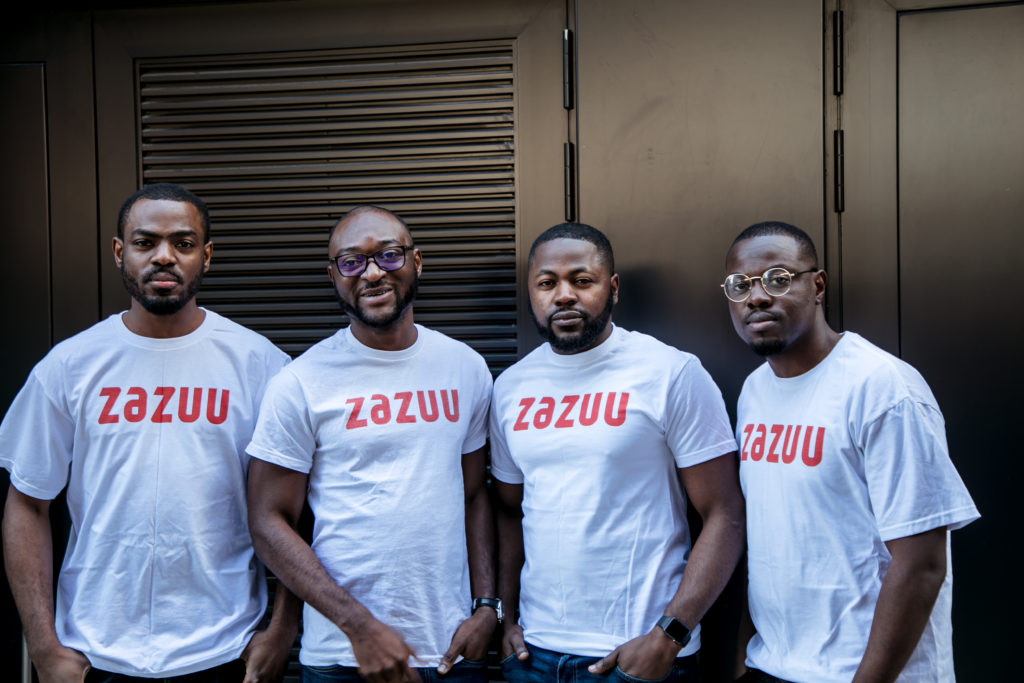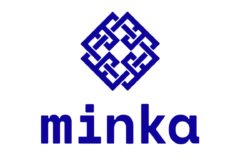One of the economic importances of a marketplace is that it enables healthy competition. Merchants on ecommerce platforms, like Amazon and Jumia, can list their products for buyers to compare prices and go with the vendors that suit their budget. Aggregating vendors on one platform gives buyers the power of choice, and this drives price competition—especially by bringing it down.
How would this look when the same model is applied to financial services like payment? Can payment networks be aggregated into one platform for people to compare and then choose a suitable provider? A few years ago, the answer to this would have been no. But, with the increasing need to move money faster across different countries and continents, and the number of available cross-border payment networks, the answer is now yes.
In answering this question, 4 friends—Kay Akinwunmi (CEO), Korede Fanilola (COO), Tosin Ekolie (CTO), Tola Alade (CDO)—came together to found Zazuu, a fintech marketplace for cross-border payment networks into Africa. It was their way of solving the problem of sending money back home, which has sort of plagued them and their families from childhood. Akinwunmi, especially, who’s originally from Nigeria but has lived in the UK with his family for 18 years, narrated how his mother would journey to Peckham just to send money to Nigeria through an agent because the banks charged a little too much for transfers at the time.
Akinwunmi, who has worked as a software development consultant for 10 years, had the idea for Zazuu in 2016 after running a couple of businesses, including a digital marketing company and a chatbot on the costs of money transfers. Fanilola was a financial analyst who had worked with a couple of firms in the US and UK before Zazuu. Ekolie was one of the early engineers at Checkout.com. He’s also an ex-JP Morgan and ex-Sky employee. Alade, on the other hand, is an award-winning designer.
Zazuu is a platform aggregating cross-border payment networks for people who want to send money to Africa from the UK and Europe. The platform stands as a recommendation engine for the best money transfer operators (MTOs) and helps users to compare and find the provider with the best rate and customer service.
“The idea is to aggregate all the world-regulated money transfer companies into one place and give customers that greater visibility and seamless experience. At the point of sending money, they can see the best rate and just use a button to move money to wherever they want,” Akinwunmi told TechCabal. “And that process should be instant and a far better experience than they’d get if they go directly to any of these partners.”
According to the World Bank, in 2021, remittances to the sub-Saharan region grew by 6.2% to $45 billion. However, Africa has the highest remittance costs globally, averaging around 9% for making a transaction of $200.

Zazuu’s overarching mission is to bring down the cost of sending money into Africa by providing its users with the power of choice and always-on accessibility. Its platform shows users which money transfer operators (MTOs) are offering the lowest commissions for money transfers.
“Some MTOs charge between 9–11%,” says Akinwunmi. “We look at the market and find the best providers. We show all the fees and also all the hidden costs. This way, we’re getting the average commission down to under 2% for our users.”
Tractions and growth
According to the startup’s website, users can send money from 8 sending countries including the UK, US, Canada, Belgium, Italy, France, and a few other European countries. On the receiving end, users can receive money in about 11 countries including China, South Africa, Zimbabwe, Uganda, Kenya, and Nigeria, which accounts for the largest international remittance in Africa.
Zazuu has 17 MTO partners on its platform including some of the biggest MTOs in the world like WorldRemit, Wise, Azimo, Remitly, and Ria. Akinwunmi also mentioned that the company continues to add more countries on both the sending and receiving end of its operations, and more MTOs.
The company has officially raised up to $800,000 in seed funding from investors like Founders Factory, in partnership with Standard Chartered Bank. According to the CEO, Zazuu has raised more than that, unofficially.
Akinwunmi also mentioned that Zazuu is Financial Conduct Authority (FCA) regulated. FCA is the same license African fintech companies like Flutterwave and Chipper Cash have to be able to operate in the UK and Europe. “FCA is a big deal for us because it will help us expand our operation globally and quickly,” he added.
How powerful could Zazuu get?
It’s somehow obvious that the more the company grows the more its potential for benchmarking how much MTOs charge on transfers becomes clearer. Zazuu is the first marketplace for cross-border payment in the world, and it’s safe to say that the many ways its power can manifest haven’t been fully realised yet.
But one thing is clear: it will control the rate of cross-border payment in Africa.
“Ten years ago, the World Bank said it wanted to drive the cost of cross-border remittance to below 2%, but that hasn’t materialised till now. Again, in 2019, the bank doubled down on that ambition, but nothing has changed because nobody is enforcing it. It’s just all talk and no action,” said Akinwunmi.
Akinwunmi said Zazuu has already started influencing cost restructuring. As of the time of the interview, he mentioned that the rate on the platform is at 1.5%—the lowest anyone transferring money to Africa can get.

But the question is, why is the cost coming down when it’s a free market and Zazuu isn’t setting the price? According to Akinwunmi, when Zazuu soft-launched in 2020, the top MTOs on the platform were unpopular agents while big companies like Azimo and Revolut were nowhere to be found on the ranking table because their rates were sort of high and these small agents had the best rate.
Now, to stay on top of the game, the big MTOs have to optimise their pricing to gain visibility on Zazuu. This is one of the powers the startup has. It can become the search engine of cross-border payment into Africa, and to rank high, MTOs would have to optimise their brand by offering the best services across board—including rate and transfer time.
What’s next for Zazuu?
In e-commerce terms, Zazuu can be identified as a “classified marketplace” because it only provides visibility and matching; everything else is done outside its platform. Once a user chooses a provider, they’re redirected to the provider’s web or mobile app.
But Zazuu wants more.
Apparently the founders have realised the scale of the power they are sitting on and are now ready to optimise and claim it to the fullest. Zazuu wants to scale into a one-stop-shop for cross-border payments; that is, when users come on the platform and choose a provider, they won’t be redirected to the provider’s platform but stay on Zazuu and explore all the functionalities of their chosen provider.
“What’s about to come is going to be an absolute game changer. We want to enable end-to-end transactions within our platform without users having to leave,” said Akinwunmi. “This is incredible, because right now, most of our customers have 3–5 money transfer apps on their phone, and they have to do KYC and identity verification and anti-money laundering checks for all of these different apps. But, now, they’ll have to only deal with Zazuu.”
Zazuu also wants to leverage the global increased demand for freelancers and globally distributed workforce to introduce its services to businesses that have employees or partners they need to pay in Africa.
This is not the first time Africa would experience a fintech marketplace: There was EvolveCredit which aggregated digital lending apps in Nigeria for users to compare and pick the one they wish to take a loan from, right from its platform. But has now become a credit infrastructure and profiling APIs for Africa. However, this is the first time in the world that a company is aggregating not just payment networks but cross-border payment networks. Akinwunmi believes that, soon, more companies with this same business model would spring up. But before then, they are focused on building and improving their products to create a seamless experience for their users.





















